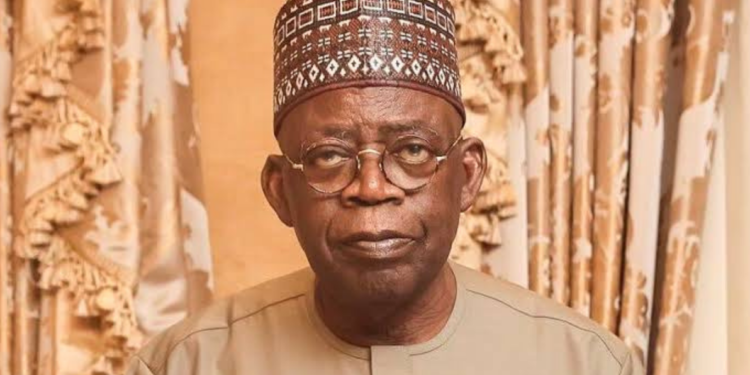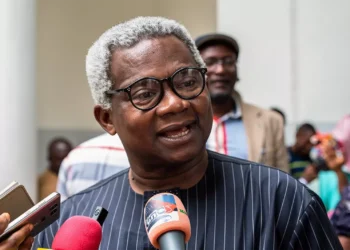The Nigerian Government has recently issued a directive that mandate citizens to seek permission before using the country’s national anthem.
This announcement was made public by Lanre Issa-Onilu, the Director General of the National Orientation Agency (NOA). The directive aims to uphold the integrity of national symbols and prevent any potential misuse or misinterpretation of the anthem.
In a formal statement released on Wednesday, October 8, Issa-Onilu explained that seeking permission is now compulsory for anyone wishing to use the national anthem.
This measure is intended to avoid any misrepresentation that might arise from its use in inappropriate context.
However, the specifics of when and how permission should be sought were not detailed in the announcement, leaving some citizens uncertain about the practical implications of this new requirement.
The NOA plays a crucial role in ensuring that national symbols are treated with the respect and reverence they deserve.
As the custodians of Nigeria’s National Symbols, the agency is tasked with preventing all forms of misuse and ensuring that these symbols are used correctly.
In his statement, Issa-Onilu emphasized this responsibility: “As custodians of Nigeria’s National Symbols, the NOA is tasked with preventing all forms of misuse. The DG emphasized that permission must be sought from the Agency before using the Anthem to avoid misrepresentation.”
This highlights the agency’s commitment to maintaining the dignity associated with the national anthem, a piece that embodies the values and aspirations of the Nigerian people.
The implications of this directive extend beyond mere permission-seeking; they also highlight a broader cultural initiative aimed at fostering a greater understanding of national identity among citizens.
The national anthem, rich in historical significance, serves not only as a musical representation of the nation but also as a source of pride and unity.
By enforcing this new regulation, the government appears to be taking steps to ensure that the anthem is honored and used in ways that reflect its intended purpose.
In respect to the announcement regarding the anthem, Issa-Onilu also took the opportunity to address the national flag.
He clarified that the flag consists of two green bands flanking a white band, with the correct shade of green being designated as Emerald 2.0.
This attention to detail reinforces the importance of adhering to established national standards, ensuring that representations of the flag are consistent and accurate.
This recent directive raises important questions about the broader cultural landscape in Nigeria. Citizens may now need to be more aware of how they engage with national symbols and the significance of their usage.
While the intention behind this policy is to protect and promote national pride, it also introduces a layer of bureaucracy that citizens must navigate.
The requirement for permission could impact various sectors, including education, media, and public events, where the anthem is often used.
Schools, for instance, may need to establish protocols for morning assemblies, while media outlets may need to consider guidelines for broadcasting the anthem.
The potential for misunderstanding or miscommunication around this policy could lead to challenges in its implementation.
The Nigerian Government’s directive to seek permission before using the national anthem reflects a significant move to protect the nation’s symbols.
By fostering a culture of respect and understanding surrounding these symbols, the government aims to strengthen national unity and pride.
As citizens adapt to these new requirements, the hope is that the national anthem will continue to serve as a powerful emblem of Nigeria’s identity, bringing people together in shared purpose and aspiration.




































